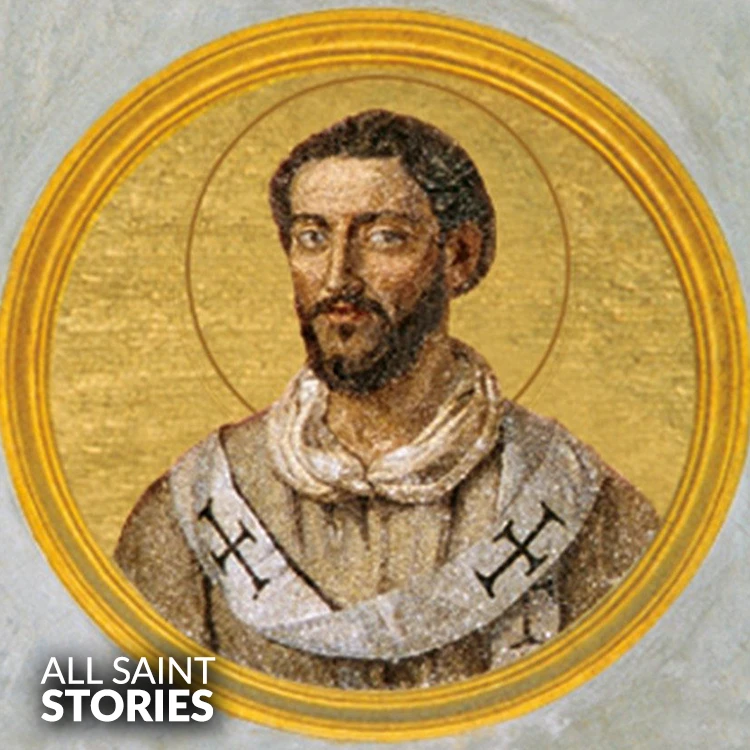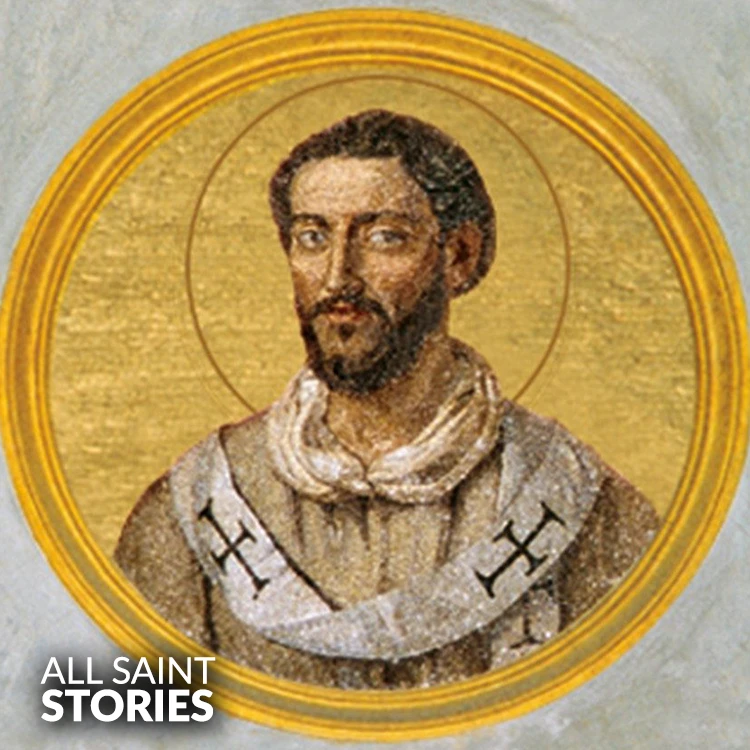"Saint Caius, faithful servant of God and steadfast leader of His Church, we ask for your intercession. Guide us in faith, strengthen our hope, and inspire us to live with courage and compassion, just as you did. Help us to follow Christ's example with devotion and love. Through your prayers, may we grow closer to God’s grace. Amen."
ST. CAIUS POPE
ST. CAIUS POPE

St. Caius was the Pope of the Catholic Church from 283 to 296 AD and is remembered for his devotion to Christ and his leadership during a period of intense Christian persecution in the Roman Empire. He is believed to have been martyred for his faith, though the details of his death are not clearly known. St. Caius is buried in the Catacombs of St. Callixtus in Rome.
St. Caius, also known as Pope Caius, served as the Pope of the Catholic Church from 283 AD until his death in 296 AD. Although little is known about his early life, he is remembered for his leadership during a difficult time for Christians in the Roman Empire, which was marked by violent persecutions against followers of Christ.
As Pope, St. Caius was committed to maintaining the integrity of the Christian faith and guiding the Church through the hostile environment of Roman authority. His papacy coincided with the reign of the Roman emperor Diocletian, who was notorious for his efforts to suppress Christianity. Though the exact details of St. Caius's martyrdom are uncertain, he is often included among the early Christian martyrs who gave their lives for their unwavering faith in Christ.
St. Caius was responsible for overseeing the spiritual well-being of the Christian community in Rome. He is credited with making several significant contributions to the development of early Christian liturgy and discipline. He worked to strengthen the unity of the Christian faithful, especially as the Church faced growing opposition from both pagan Roman authorities and other heretical groups.
During his papacy, St. Caius is also said to have been involved in safeguarding the Christian community by organizing charitable works and providing shelter to Christians who had been persecuted for their faith. His leadership helped ensure the survival of the Church during one of its most challenging periods.
It is believed that St. Caius was eventually martyred, although the exact circumstances of his death are not clearly known. Some sources suggest that he died as a result of persecution under Diocletian, while others believe that he was imprisoned and died in exile. Despite the uncertainty surrounding his death, St. Caius's sacrifice for the faith made him an important figure in early Christian history.
St. Caius is buried in the Catacombs of St. Callixtus in Rome, a burial site for early Christian martyrs and Popes. His tomb became a place of veneration for early Christians, and his memory continues to be honored by the Church today.
Though not as well-known as some other early popes and martyrs, St. Caius’s legacy is marked by his unwavering commitment to the Christian faith, his pastoral care, and his leadership in the face of adversity. He is often remembered for his role in maintaining the unity and strength of the early Church, especially during a time of great trial and persecution.
Video Not Found
The information on this website is compiled from various trusted sources. While we aim for accuracy, some details may be incomplete or contain discrepancies.
If you notice any errors or have additional information about this saint, please use the form on the left to share your suggestions. Your input helps us improve and maintain reliable content for everyone.
All submissions are reviewed carefully, and your personal details will remain confidential. Thank you for contributing to the accuracy and value of this resource.
Credits & Acknowledgments
- Anudina Visudhar (Malayalam) – Life of Saints for Everyday
by Msgr. Thomas Moothedan, M.A., D.D. - Saint Companions for Each Day
by A. J. M. Mausolfe & J. K. Mausolfe - US Catholic (Faith in Real Life) – Informational articles
- Wikipedia – General reference content and images
- Anastpaul.com – Saint images and reflections
- Pravachaka Sabdam (Malayalam) – Saint-related content and insights
We sincerely thank these authors and platforms for their valuable contributions. If we have unintentionally missed any attribution, please notify us, and we will make the correction promptly.
If you have any suggestion about ST. CAIUS POPE
Your suggestion will help improve the information about this saint. Your details will not be disclosed anywhere.
© 2026 Copyright @ www.allsaintstories.com




 English
English
 Italian
Italian
 French
French
 Spanish
Spanish
 Malayalam
Malayalam
 Russian
Russian
 Korean
Korean
 Sinhala
Sinhala
 Japanese
Japanese
 Arabic
Arabic
 Portuguese
Portuguese
 Bantu
Bantu
 Greek
Greek
 German
German
 Dutch
Dutch
 Filipino
Filipino